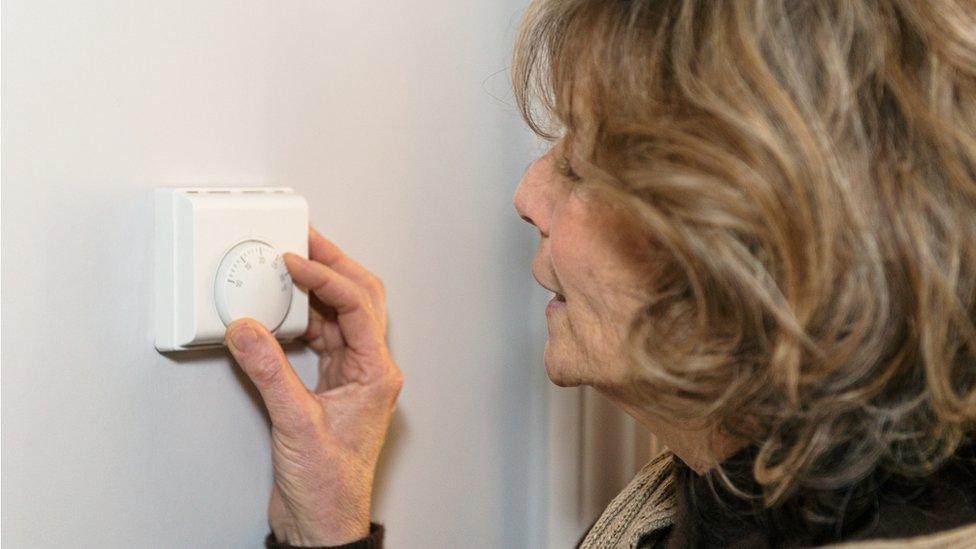Energy bill help to cost billions more from January
- Published

The government will have to pay billions of pounds more to support households with their energy bills from January, after the regulator increased its energy price cap.
But it will not affect households as the government is limiting their bills.
Under the Energy Price Guarantee (EPG), the typical household is currently paying £2,500 a year for energy.
But Ofgem said that without government support households would have paid £4,279 from January.
Energy research firm Cornwall Insight said the increase would worry the government, which is "shouldering the billions of pounds needed to compensate suppliers the difference".
But the Resolution Foundation, a think tank focused on people on low-to-middle incomes, said the price cap was needed to stop an "acute cost-of-living crisis getting dangerously worse over the cold winter months".
Savings for households
In normal times, the energy price cap would set the maximum amount suppliers can charge households per unit of energy.
But since October it has been superseded by the EPG, which is protecting people as energy prices soar in the wake of Russia's invasion of Ukraine.
Under the EPG, suppliers can charge a maximum of 34p per unit for electricity and 10.3p for gas until the end of March.
This rate will go up slightly in April after the new chancellor scaled back the support, and remain in place until the end of March 2024, leaving the typical household paying around £3,000 a year.
Ofgem's announcement, however, shows that without the government's help, consumers would have had to pay 67p per unit for electricity and 17p for gas from January.
It means the government's support will save typical households around £1,779 a year compared with what they would have had to pay under the regulator's cap.
The total cost of someone's bill will vary depend based on how much energy they use, however.
On Wednesday, Chancellor Jeremy Hunt said that people should cut their energy use to stop the UK being "blackmailed" by people like Russian President Vladimir Putin.
Mr Hunt said "in the end everyone is going to have to take responsibility for their energy bills" and consider how to cut their consumption.

The most important point to make about today's announcement is that it does nothing to affect the price per unit of energy that we all pay in our domestic gas and electricity bills, owing to the government guarantee that is in place.
Price caps can be confusing at the best of times, and this adds an extra layer of complexity.
However, there are some issues raised in the finer details of what has been said.
Firstly, it allows a better estimate of the cost to the government of its policy - even though events in Ukraine, for example, could still have a massive impact on the final bill.
Secondly, there is a reminder that paying a bill monthly by direct debit remains a much cheaper option than being on a prepayment meter, and significantly cheaper than paying your supplier every three months for the energy you have used.

There is concern about the cost of the EPG at a time when the government's debts are rising.
Speaking earlier this month, Mr Hunt said the scheme was costing government the same "an entire second NHS" and added: "It's not possible to subsidise people's energy bills indefinitely."
Cornwall Insight estimates the full cost of 18 months of the scheme will be £42bn - although this is up from £38bn only a week ago due to the volatility of wholesale energy prices.
"This highlights the nature of the wholesale market risk that the government is taking on by deciding to extend the EPG... with the consequence that the full costs may be potentially higher than currently budgeted for," said Craig Lowrey, principal consultant at Cornwall Insight.
He added that the government was "exposed to variables and factors over which they crucially have no control".
The EPG scheme was originally announced by former Prime Minster Liz Truss, who intended it to run for two years.
But Mr Hunt said in October that he would scale it back so it cost taxpayers "significantly less than planned", and there are no plans to keep it beyond March 2024.


Related topics
- Published24 November 2022

- Published17 November 2022

